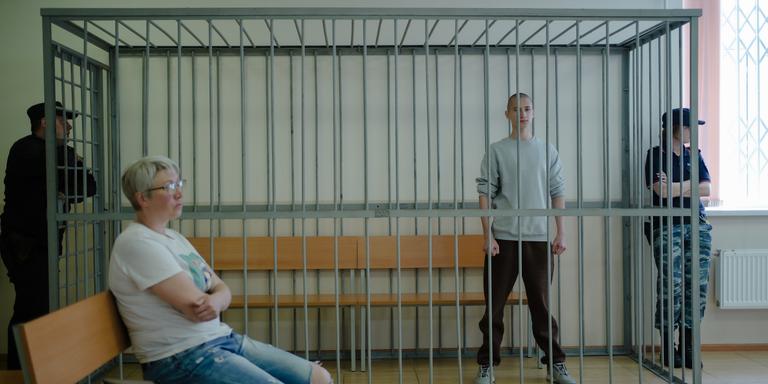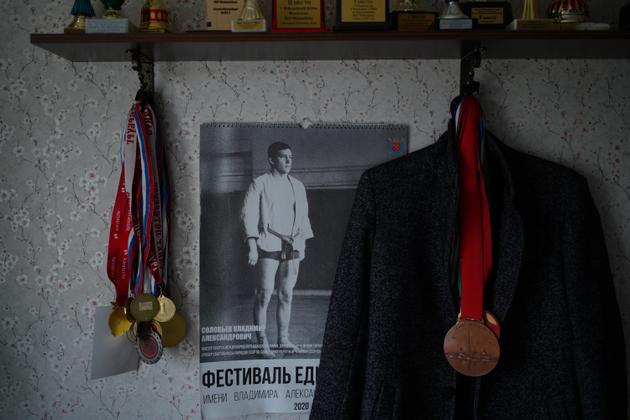


The story of Yegor Balazeikin, the imprisoned 'terrorist' teenager who wants to 'remain a man'
InvestigationBorn into an 'apolitical' Russian family, the 16-year-old became an opponent of the war after the death of his uncle on the Ukrainian front. The teenager was arrested in February after a failed Molotov cocktail attack on the Kirovsk military recruitment office. He is currently awaiting trial for two 'attempted terrorist attacks.'
The small bedroom is full of childhood memories. Trophies won in karate competitions. The binder where the model schoolboy kept his certificates. School books and those evoking the passions of adolescence – extensive collections of Dickens and Erich Maria Remarque, biographies of Tsars and military history manuals. A metal sword. The very first bottle of cheap aftershave. And a heavy, carefully hung wool coat, the kind worn by poor young students in Dostoyevsky novels. Its owner hardly had time to use it.
His parents were told about his arrest late in the evening of February 28. A suspicious individual had been reported near the military recruitment office in Kirovsk, an hour's drive from St. Petersburg. Someone had allegedly tried to set fire to the building: A broken bottle and flammable liquid were found on the ground. A police car spotted 16-year-old Yegor Balazeikin. He was waiting patiently for the bus home. "Did you do this?" "Yes." He explained that he had waited until 10:00 pm to make sure there were no casualties. But the Molotov cocktail didn't work, and the fire hadn't started.
Since then, he has been detained at the pre-trial detention center for minors in the city of St. Petersburg, number 5. It was there, between the four walls he shares with three young rape suspects, that Balazeikin began to transform himself. In the eyes of the authorities, the child became a "terrorist." Right from the very first interrogation, he didn't try to hide his motives: "I'm against the war, I want people to stop dying in the war," he said. The days of placards and peaceful demonstrations (which were also shut down) are over, he believes. Those who oppose the horror and injustice of the war in Ukraine have missed their chance. All that remains is despair – and the actions that go with it.
Changing facts
At this point, the investigators were alone with him – no parents, no lawyer. It was illegal, but it meant they could get Balazeikin to repeat the right phrases: Yes, by acting in this way, he wanted to change the constitutional order of the Russian Federation. This statement meant the facts could be changed. Rather than a simple "attempt to damage state property," Balazeikin will be tried for two "attempted terrorist attacks." Two, because the police are accusing him of a second attack on a military office, this time in St. Petersburg itself. Each case carries a minimum sentence of five years.

Balazeikin, who turned 17 on August 6, is not Russia's only under-age "terrorist" or "extremist." There were a few before the war, like Nikita Uvarov, imprisoned at the age of 14 for talking about blowing up a replica of an FSB building in a video game. Today, there are dozens of such youngsters, accused or convicted of setting fire to railway infrastructures or military recruitment offices. Despite increased surveillance and sentences meant to set an example (the very first person to set fire to a military office, on February 28, 2022, was sentenced to 13 years in prison), this form of protest has not disappeared: Independent media have counted 113 cases since the start of the war, 41 of which have been or are being tried on terrorism-related charges.
You have 80.48% of this article left to read. The rest is for subscribers only.
